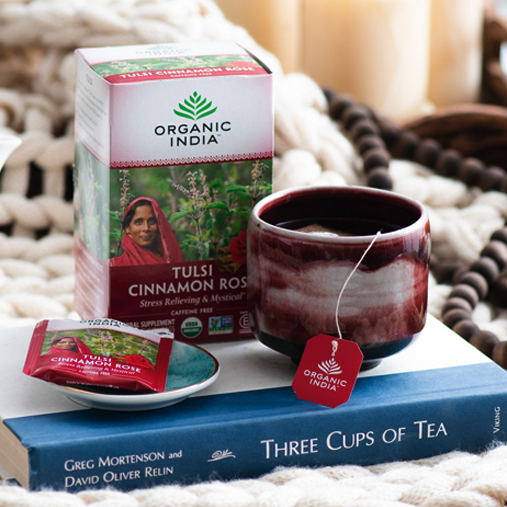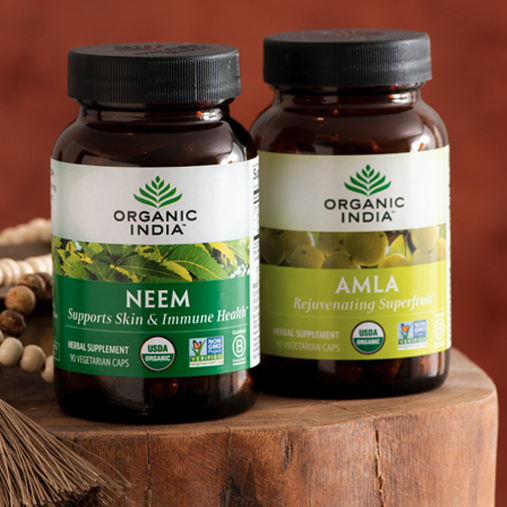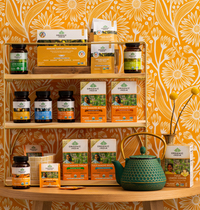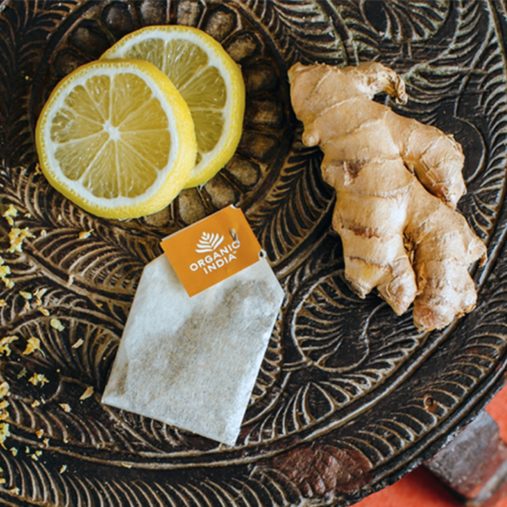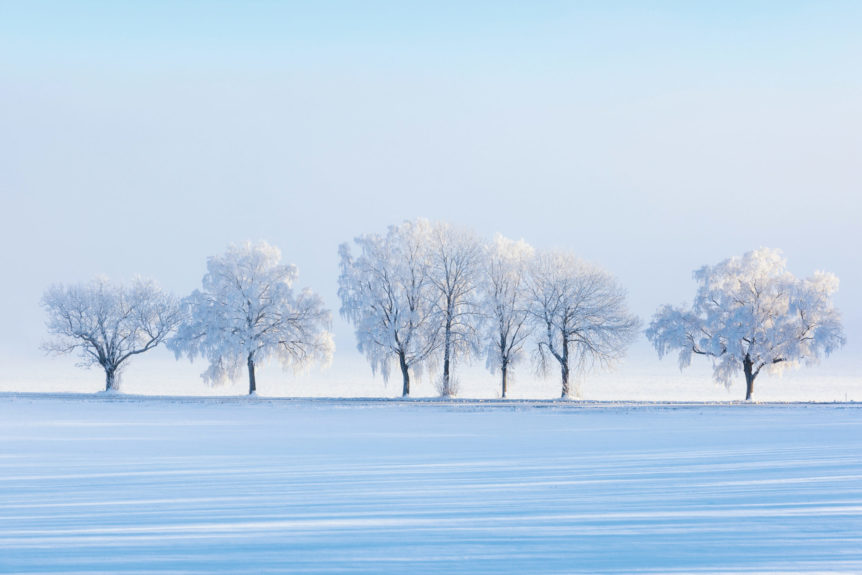Back
Ayurveda is one of the world’s oldest surviving healthcare systems, and is based on the “dosha” system — three types of universal energies that are applied to the human body and mind, as well as the natural world; even the weather. The doshas include Kapha, Pitta, and Vata, and as we move deeper into the Winter season, we’ll be leaving the Vata dosha of Autumn to experience seasonal Kapha qualities.
Ayurvedic wisdom tells us that as winter approaches, it’s helpful to know your dosha so you can prepare for the coming season. Alignment comes with eating certain balancing foods, as well as nourishing your mind and adjusting your personal habits.
Winter Qualities and Characteristics
Dr. Vasant Lad, author and Ayurvedic expert, wrote, “In winter, the sky is often cloudy and gray, the weather is cold, damp, and heavy, and life, even in the cities, moves more slowly. Welcome to kapha season. When balanced, kapha supplies strength, vigor, and stability to both body and mind. This subtle energy is responsible for lubricating the joints, moisturizing the skin, and maintaining immunity. But in excess, it can lead to sluggishness, mucus-related illnesses, excess weight, and negative emotions such as attachment, envy, and greed.”

Winter Food
Ayurveda links immunity to digestion. Strong digestion equates to healthy immune function. During Winter’s Kapha season, drinking warm/hot water and using digestion-enhancing spices, such as ginger, cumin, coriander, cardamom and cinnamon can be helpful in supporting immune funtion. And, suggests Ayurvedic practitioner Geeta Vara, the immune system can be supported with chywanprash, “a jam packed full of immune-boosting herbs.” Vara and other practitioners say that a glass of warmed red wine in winter may provide physical and mental comfort, especially when combined with cinnamon, cardamom, clove, ginger, fennel, nutmeg and black pepper.
Because appetites are heartier in the winter, the body often requires more protein, and this can be ingested in the form of beans, tofu, or eggs as well as chicken, turkey, and fish for non-vegetarians. Dr. Lad said that drinking a few ounces of sweet or dry wine with meals helps kindle the agni (digestive fire), improve the appetite, and increase circulation. It’s best to avoid cold drinks (which aggravate kapha and vata), and ingest hot water, hot tea, and occasionally, hot cocoa or chai.
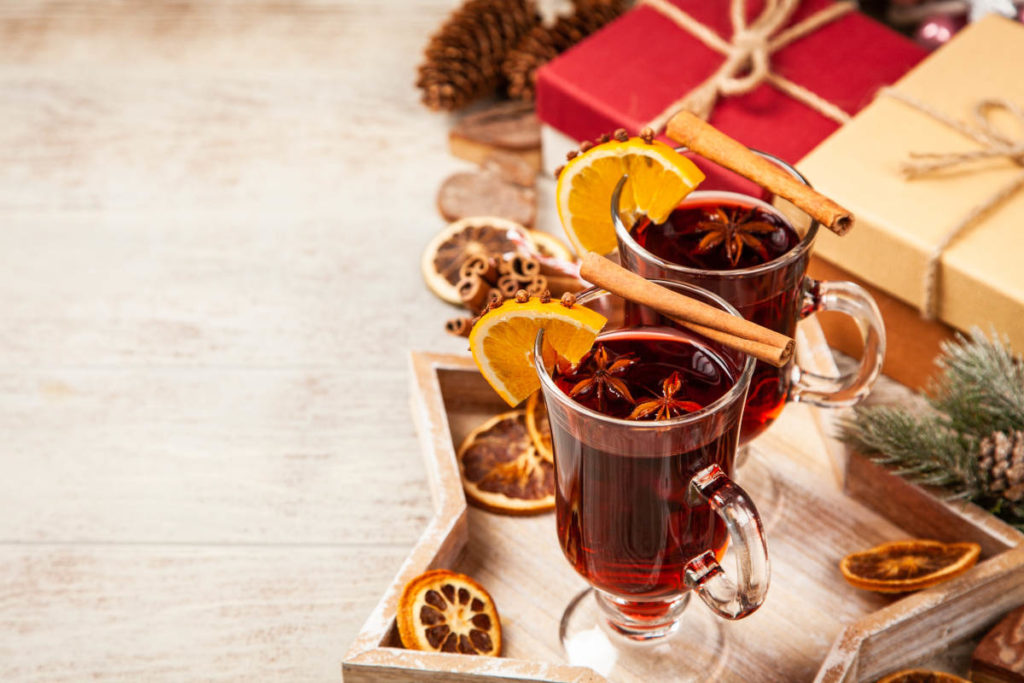
Different Doshas Different Needs
Each dosha has different requirements for winter because each is affected differently by the season’s conditions. A vata type is susceptible to feeling cold and disturbed in the winter. Kapha types are prone to congestion and stagnation in the mind and body. Pitta people tend to do well, especially in early winter, because it helps soothe their natural, internal heat. But when any dosha is out of balance and facing the changing doshas of weather, then the person may not feel or act his/her best.
Although meditation is a year-round practice that focuses on a healthy body, mind, and sense of spirit, it too may be adjusted during the winter months. Yoga is helpful in this regard, and some experts recommend practicing hot yoga to warm the body, increase circulation, and rekindle certain parts of the body.
Kapha in Winter
While it may seem logical that Kapha types would do well in Kapha weather, this is not necessarily so, because they can incur excess Kapha, throwing them off balance. The antidote is to stay warm, active, and properly fed. Kapha types tend toward stagnation, so ramping up exercise and movement is recommended. Kaphas may opt to wear bright, warm colors during this time of year, and favor scents such as eucalyptus, sage, and rosemary. To stimulate circulation, it may help to use invigorating oils such as Abhy or oils infused with warm, stimulating aromas. A daily dry massage (Garshana) helps, as well.
Regarding diet, Kaphas do best to avoid sweet, cold foods. For instance, ice cream or cold smoothies are not a good idea. Invigorating, warming spices are ideal, as well as limited salt intake that may lead to greater water retention.

Pitta in Winter
Pitta types are related to the fire element, as well as that of water. They tend to be success-oriented, energetic, quick-witted, and have a great capacity for achieving balance and well-being. When they are out of balance, though, digestive problems are common. And, according to Ayurvedic experts at the Art of Living Retreat Center, North Carolina, an imbalance “will typically manifest through anger, irritability, overall discontentment, acidic indigestion, heartburn, and inflammation. Pitta can become imbalanced when one doesn’t get enough rest or eats spicy foods.”
In winter, Pitta types fare better by avoiding pungent, salty, and sour foods. Eating fewer sour fruits, like grapefruit, also helps. Instead, try eating fruits such as mangoes, pineapples, grapes, and melons. Vegetables like tomatoes, onions, and hot peppers are best avoided. Instead, cooling foods tend to be best, such as cucumbers, green beans, potatoes, cauliflower, and broccoli. Seasonings such as clove, cilantro, cardamom, and fennel are suggested. Dairy foods such as butter and milk may help balance the heat of pitta.

Vata in Winter
Vata types tend to be thin in build and light and airy in spirit and mind. Vata is the embodiment of movement, yet movement is restricted in the winter months. Thus, it is a good time to stay warm indoors, hunker down with a good book, and go deeper into one’s daily meditation routine. These activities help occupy the Vata mind in what could otherwise be an aggravating few months. Although the Vata dosha may be soothed by sweet, sour, and salty tastes, the Kapha time of year often presents certain challenges. Leo Carver, Ayurvedic lifestyle instructor at the Chopra Center, said, “The very tastes that pacify Vata also increase Kapha.” The best approach is to concentrate on herbs and foods that carry dual tastes to avoid aggravating your Vata nature while balancing the effects of your Kapha environment. Good herbs and spices include mustard, cardamom, licorice, garlic, and ginger.
Vata types need to pay attention to sensitivities to certain tastes, and learn to adjust their diets according to the daily conditions. For example, noted Carver, “if it’s a strongly Vata day (i.e. dry and windy) despite being Kapha season, focus on more Vata-balancing foods and tastes. Since Kapha season can contribute to sluggish digestion, eat at regularly scheduled times without skipping meals or overeating.”

The innate beauty and wisdom of Ayurveda shows us that we are all a part of one singular system of consciousness. The mind and body interact with the flow of nature and the seasons. When you understand your dosha type, as well as the dosha of the environment, then you can help your body and mind remain in balance.
Want more winter wisdom? Check this out: Winter is the Time for Superfood Cinnamon – Organic India (organicindiausa.com)
